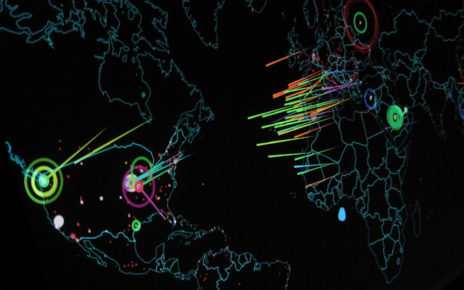Israel has been a valuable associate of NATO for years. It is involved in NATO’s Mediterranean Dialogue, an initiative designed to foster collaboration between the alliance, Israel, and six other Middle Eastern and North African states to promote stability around the Mediterranean through military and political cooperation. Less formally, Israel’s Mossad has been critical to the intelligence effort that is central to the prosecution of the War on Terror, a conflict in which NATO is deeply steeped. But could Israel ever become more than just an associate of NATO? Could Israel ever accede to full-fledged NATO membership? Should it do so? Would Israel conceivably pursue such a course, and would other NATO powers assent to its membership? This article attempts to provide even-handed answers to these questions. Israel has been a flashpoint of international politics for decades, and its profile on the world stage shows no sign of diminishing. As one of the dominant powers of the Middle East, a region that continues to occupy the attention and activities of NATO in the twenty-first century, the relationship between the alliance and the world’s sole Jewish state merits scrutiny.
A natural objection to Israeli membership in NATO is that it is situated ‘outside’ the North Atlantic region. This is beyond dispute. But it cannot be convincingly argued that Bulgaria or Turkey are “North Atlantic” states in any meaningful way either. The latter’s frontiers extend well east of Israel’s. The state of Georgia, perched deep in the Caucasus Mountains, has been a serious contender for NATO membership for years. Interestingly, Article 10 of the North Atlantic Treaty enjoins members to invite any “European” state into the alliance by unanimous agreement. Other than its toehold in Thrace, Turkey can hardly be deemed “European” in the geographical sense. When one adds to this the fact that NATO’s most recent military activity was its command of the International Security Assistance Force (ISAF) in Afghanistan, in Central Asia, the geographical argument against Israeli admission to the alliance is untenable.
Perhaps a more convincing argument against Israeli membership would be objections on political and humanitarian grounds. For example, Israel has a very uneasy relationship with the United Nations, an organization to which NATO is formally committed. Although it was later revoked, in 1975 the UN General Assembly passed Resolution 3379, condemning Zionism –the sine qua non of Israel’s existence – as “racism,” thus casting aspersion on Israel’s legitimacy. Israel routinely finds itself at loggerheads with the Organization of Islamic Cooperation (OIC), the largest voting bloc in the UN. However, Israel is not the only state to run afoul of the UN. The United States – the most powerful NATO member –at times flouts the will of the United Nations, perhaps the most infamous example of which was the arguably illegal invasion of Iraq in 2003. None of this has cast any doubt on the legitimacy of the United States’ membership in NATO.
Israel has also been criticized for allegedly committing human rights abuses, particularly in the Palestinian Territories, which Israel now occupies. This is not a matter to glibly gloss over. However, these remain tendentious claims. The UN bodies that level these allegations, such as the Human Rights Council, are staffed with representatives of member states with dubious credibility on the subject, like China, Cuba, and Saudi Arabia. Moreover, Israel’s current possession of the West Bank is the consequence of previous conflicts, and Israel’s identity as the aggressor in these conflicts has not in any way been conclusively established. On the other hand, Turkey’s violations of human rights are well documented, but this has not delegitimized its status as a NATO member. According to the freedom index provided by Freedom House, Israel has a more robust democracy than Turkey, Hungary, Albania, Montenegro, or North Macedonia – all NATO members.
The question of whether Israel should become a member of NATO is a more contentious one to answer than if it technically could become one. From NATO’s perspective, affirming the case for Israeli membership, Israel possesses many assets that would make it an attractive addition to the organization. The military prowess of the Israeli Defense Forces (IDF), the intelligence provided by the Mossad, and Israel’s strategic position in the heart of the Middle East would be its most valuable contributions to the NATO’scapability. Israel is a dynamic producer of technology, and much of its scientific ingenuity can be directed towards a military application. Much of its military equipment is the same as that used by other NATO militaries, rendering it interoperable with the rest of the alliance. Israel’s military budget accounts for an astounding 4.3% of its GDP, which would place it well ahead of every other NATO member, including the United States, in meeting the goal set by all NATO members for their annual military spending – defence budgets worth 2% of the GDP. Finally, although it has not admitted to possessing such weapons, it is an open secret that Israel is a nuclear power. NATO remains a nuclear alliance, and Israeli membership therein would upgrade the number of NATO nuclear states from three (the United States, the United Kingdom, and France) to four.
Naturally, NATO leaders should always balance the organization’s policy of extending a welcoming hand to new members with a healthy cautiousness about expanding its frontiers. Since the end of the Cold War, NATO enlargement has been one of the most contentious aspects of the organization’s policy. While some of the outrage critics have directed at NATO’s “expansionism” may very well be contrived as a cynical ploy to discredit it, stewards of the organization would do well to remain attuned to how other states might interpret an enlargement of the alliance. Moreover, a larger alliance is, in some respects, more unwieldy. NATO decision-making is based on the principle of building consensus among its members. The more parties to the organization, the more difficult it is to build concord between them, as member states might have disparate interests in spite of the values they share in common.
In the case of Israel, these problems are compounded by the obvious fact of its Jewish national identity, one that does not endear it particularly well with, for example, an (increasingly) Islamic Turkey. However, this problem is not necessarily prohibitive. After all – notwithstanding their history of uneasy coexistent in the alliance –Greece and Turkey are both NATO members, despite centuries of racial and religious conflict between their two peoples. Moreover, while one might expect Turkey’s Islamic identity to prejudice it against the interests of Jewish Israel in a potential dispute between Israelis and Muslim Arabs in the Middle East, Turks’ ethnic differences with Arabs do not make this a foregone conclusion. Recent history furnishes plenty of examples of Turkey pursuing its national interest at the expense of Arab states. There are also instances of Israeli-Turkish intelligence cooperation, in spite of heated public rhetoric exchanged between the governments of both states.
Another objection to whether Israel should join NATO is the obvious and reasonable concern that it could markedly increase the chances of embroiling the alliance in an armed conflict. However, this danger is probably overestimated. First, while representatives of some NATO states might be worried that – given the historical record – the apparent likelihood of Israel being attacked by one of its neighbours is high, Israeli membership in NATO could have the effect of reducing that chance. That is to say, an Israel protected by the NATO umbrella of collective defence might actually dissuade potential aggressors from attacking her. Second, there has not been a major conventional attack on Israel by another state since the Yom Kippur War of 1973. Since that time, there have actually been more conventional conflicts against states like Georgia, in 2008, which NATO continues to consider for membership in the alliance. Territorial invasion seems far more likely against the Baltic NATO states of Lithuania, Latvia, and Estonia than against Israel, hence the need for the alliance’s Enhanced Forward Presence. The obvious truth is that no immediate neighbour of Israel is in a position to challenge it militarily. Not only could Israel probably handle any regional invader on its own, but the 1973 war also illustrated the United States’ commitment to the Jewish state’s security. The only state currently threatening Israel with a conventional attack is Iran, a state against which NATO has already implemented defensive measures. On the other hand, even an unconventional attack by Iran or an Iranian proxy, such as Hezbollah, could potentially trigger the activation of Article 5 – NATO’s collective defence provision – were Israel to become a member. After all, it should be recalled that the only historical instance of its invocation was in response to the 9/11 attacks, which were carried out by non-state actors.
All in all, it is probably more likely that Israel would be wary of membership in NATO, not least for the obvious reason that it would then be called upon to assist other NATO members in their respective conflicts. Israel is, at root, a nationalistic refuge state focused on its own survival. It would not be irrational if, by conducting a cost-benefit analysis, Israel determined that NATO membership was simply not worth the cost. In the case of the Mediterranean Dialogue, for example, states like Israel are granted great leeway in determining how deeply they wish to be involved with NATO. From Israel’s perspective, it can potentially extract whatever it finds useful from an association with NATO, and even participate in joint exercises with it, but without binding itself to the specific commitments that alliance membership involves. Then again, a somewhat delicate truth about the collective defence mechanism of the North Atlantic Treaty is that stipulates that parties to the treaty will “consider” an attack against one as an attack upon all members, and that each state will take “such action it deems necessary” to restore security in the North Atlantic region. If it ever did become a member, this measured language could potentially allow Israel – or any member of the alliance, for that matter – to limit just how involved it became in a foreign conflict.
In the final analysis, the rest of NATO would probably benefit from Israeli membership in the alliance more than Israel would from such an arrangement. Therefore, it is unlikely that Israel will seek to join the organization anytime soon, especially while it is occupied by the thorny issue of finding a long-term solution to the issue of Palestinian dispossession. However, there are also encouraging signs of growing cooperation between Israel and NATO.Only as recently as 2016 did Israel open a liaison office at NATO headquarters in Brussels. In 2019, NATO Deputy Secretary-General Rose Gottemoeller made an official visit to Israel. This, combined with ongoing Israeli participation in NATO military exercises, suggests that Brussels and Jerusalem are moving closer together, not further apart. While this flirtation may stop short of a formal partnership, NATO officials should do what they can to cultivate this relationship. Not only is the Israeli military of incomparable worth in the Middle Eastern theatre, and therefore a powerful friend for the alliance to call upon, but Israel, as a democracy, committed to individual liberty and the rule of law, is a state that is a natural ally of the Western civilization spoken of in the preamble to the Washington Treaty, the defence of which is NATO’s raison d’etre.
Photo: IDF Home Front Command’s Search & Rescue Brigade Complete Their Beret March (2014) by Israeli Defence Forces. Licensed under CC.
Disclaimer: Any views or opinions expressed in articles are solely those of the authors and do not necessarily represent the views of the NATO Association of Canada.




